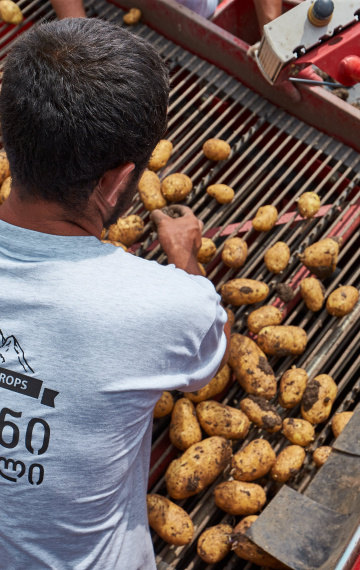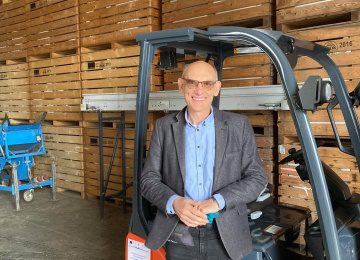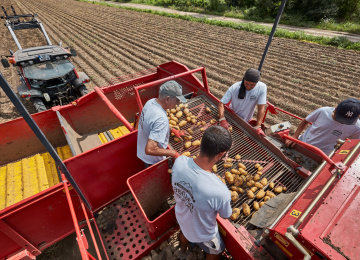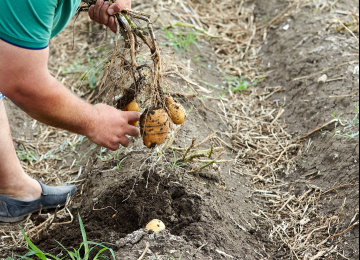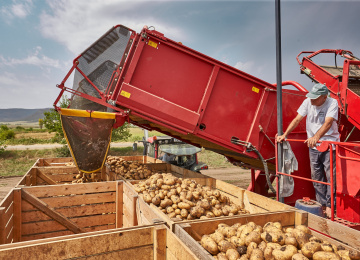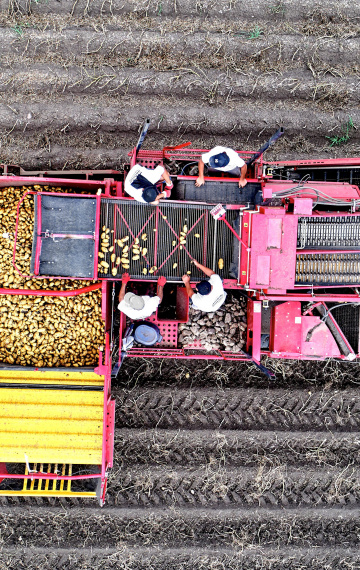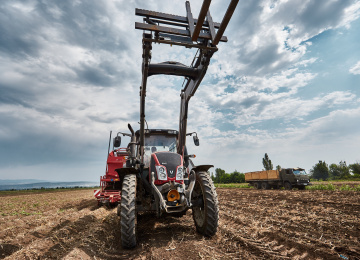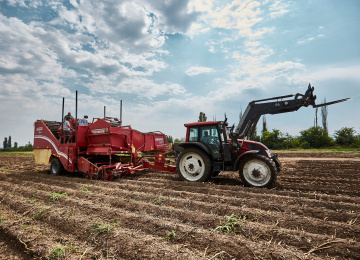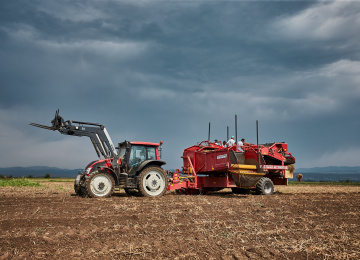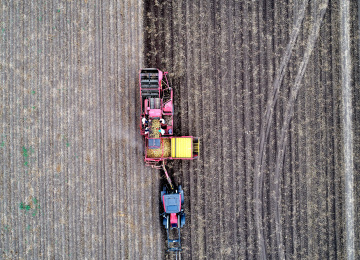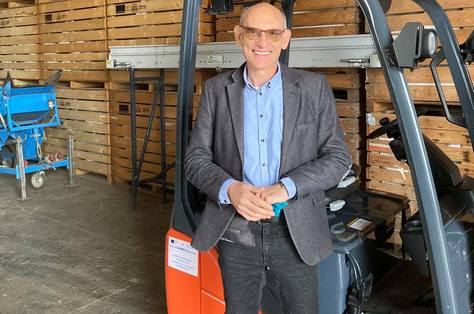
Have you ever wondered how the famous Georgian chips Frixx travels to market counters? From local farmers, potatoes go to a storage facility run by Mziani Mosavali in a small village Savaneti, in Bolnisi Municipality where potatoes are stored with high standards. Then they are delivered to processing company Wellington that makes Frixx.
Mziani Mosavali, currently run by a Polish citizen Wlodzimierz Lepczynski and owned by a Swedish-Georgian citizen Jean-Frédéric Paulsen, was founded in 2015. The company started by growing potatoes and distributing them to processing companies. Soon it became clear that the enterprise had the potential for much more.
Happy customers and happy farmers
Through time Mziani Mosavali expanded its production process and shifted focus from just potatoes to a range of vegetables. This changed not only the lives of those that worked at the company, but of local farmers as well whose families often depend on potato production. The enterprise started to offer farmers their storage facility, where products could be stored at high standards to fully maintain its taste properties.
But no work comes without challenges. To store potatoes for a long time the enterprise needs to have a special infrastructure, meaning ventilated storage boxes should be made in a way to keep, among other factors, the right balance of sugar in potatoes. Otherwise, the product might turn out not to be good enough for processing, causing frustration for the enterprise and farmers.
Mziani Mosavali was lucky enough to solve this problem with ENPARD, EU4Business and the Food and Agriculture Organization of the United Nations (FAO) support. The enterprise purchased containers with more than 500 tons capacity, as well as a specialized forklift that allowed the company to expand operations.
“This forklift is very much critical for us. And it has significantly improved our company’s efficacy,” says Nato Molodini, project manager at Mziani Mosavali. “As a result, on the one side you have happy customers, and on the other side there are farmers who have been offered an amazing opportunity to store their product for the entire year.”
Creating jobs and sharing knowledge
There is more to come for Mziani Mosavali as the enterprise and its staff members do not have any intention to stop. Their next steps include expanding the storage facility and installing cooling refrigerator systems. This will enable the enterprise to store more potatoes, then more potatoes will be processed and more of this the product will enter not only Georgian but international markets as well.
"Replacing imports is my great desire and we truly have full potential for that. However, we need to work a lot to achieve this goal. The big advantage of Georgian product is its quality,” said Wlodzimierz Lepczynski in an interview on Imedi TV.
The director Wlodzimierz Lepczynski worked in production, in Germany for many years and his intellectual investment is very important not only, for the enterprise, but local farmers as well. Mziani Mosavali often offers consultations and study tours to teach farmers how to harvest potatoes in the right way so that later on they are stored accordingly and maintain high quality.
In a municipality like Bolnisi, where agriculture is the main source of income, the opportunity for local farmers to learn more about potato production can lead to an increase in employment rates, as well as sales and income for families. Mziani Mosavali plays its role here. If previously the enterprise needed about 10 seasonal workers, now it needs more than 40-50 people working for up to 6 months, in addition to their 25 staff members.

